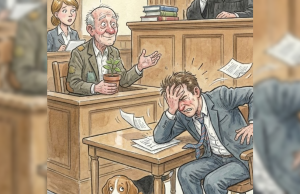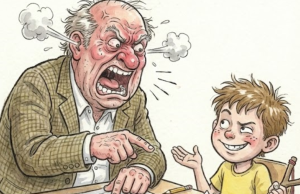10 Common Age-Related Problems You Should Know Before You Reach 60, Says Doctors
1. Dental Health
Because teeth do not renew themselves, our dental health deteriorates as we age. Good dental hygiene is the key to good overall health, and that poor oral hygiene can lead to major health problems like heart disease, dementia, cancer, lung infections and more.
2. Pelvic floor problems
Hormonal changes, as well as natural wear and tear on muscles and connective tissue, can promote additional “looseness” in the pelvic floor tissue. Urinary incontinence (particularly, leaking when laughing, running, jumping, or sneezing) and instability of the pelvic organs are the most common.
Full and deep diaphragm breathing, performing a more effective kegel improved pelvic floor problems.
4. Breathing problems
Years of moderately high blood pressure and lack of exercise cause the heart arteries and heart to become less compliant-that is, they are unable to relax as easily as they once did. The pressure inside the arteries, and then the heart, rises because they can’t relax as easily.
The easiest approach to avoid this is to control the blood pressure as quickly as you notice it rising. In addition, regular cardiovascular exercise (walking, cycling, jogging, etc.) is advised, with the required 150 minutes of moderate aerobic exercise every week.
5. Swelling of the legs
Swelling of the ankles and lower legs affects many people in their 60s for almost the same reasons. This is a typical condition caused by the heart arteries and the heart becoming stiff.
In addition to doing what is prescribed for shortness of breath, stay away from salty meals, which can raise blood pressure and induce edema in the legs. If you already have signs, your doctor may recommend a diuretic (water pill) to help you get rid of excess fluid.
6 . Sleep Problems
Falling and staying asleep can be more challenging as we age, in part because our bodies produce less growth hormone and melatonin, but getting enough sleep is still critical.
7. Chronic Aches, Pains, and Muscle Tension
Because of the effects of aging on the spine and joints, many elderly people require joint replacement surgery.
Taking care of the body, whether through chiropractic care, physical therapy, or exercise, “all with the goal of managing pain, restoring function, and slowing the degenerative process!”
8. Problems with Balance
Muscular endurance and joint flexibility can deteriorate as we age, affecting our reaction time. We are also more likely to develop vestibular problems, which can cause our posture to deteriorate as our vision and hearing deteriorate. This is why it seems that the older we get, the more we fall.
There are a variety of exercises that can help with balance. Tai chi or even standing on one leg at a time for thirty seconds with your eyes open can be quite beneficial. Do it with your eyes closed if it becomes too easy. If you need to hold on to something, make sure it’s near a wall!
9. Leg cramps
Leg pain can be caused by a variety of medical illnesses or medications, or it can be as simple as dehydration or an electrolyte imbalance. Unfortunately, they can be excruciatingly unpleasant and keep you up at night.
Leg cramps can be prevented by staying hydrated and consuming a magnesium supplement. It is also a good idea to check with your doctor to see if any of your medications are causing the problem.
10. Loss of Height and Exacerbated Posture
Everyone loses height as they age, according to science. However, osteoporosis and spinal deterioration, which is the loss of spinal disc thickness and joint cushioning, cause some people to shrink at a faster rate than many others.
Take good care of your body. Exercise is an excellent strategy for keeping your bones healthy.
Source:ng.opera.news



















